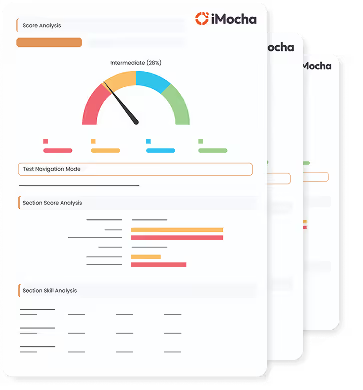


Choose easy, medium, or tricky questions from our skill libraries to assess candidates of different experience levels.
Choose easy, medium, or tricky questions from our skill libraries to assess candidates of different experience levels.

Choose easy, medium, or tricky questions from our skill libraries to assess candidates of different experience levels.

Choose easy, medium, or tricky questions from our skill libraries to assess candidates of different experience levels.
This a comprehensive PDF report, which you can instantly download and share with your hiring team or candidates for seamless collaboration.
Download Sample Report



This high-quality, customizable test allows recruiters and L&D managers to assess skills like Syntax, Configuration Management, Validation, Parsing, etc. Leverage it to reduce hiring costs by 45% and create targeted learning programs.





%20(1).webp)
It is a human-readable data serialization language. It is often used for configuration files, data exchange between languages, and storing structured data. It is designed to be easy to read and write for both humans and machines.
Why use iMocha’s YAML skills test?
Whether you plan to hire or upskill entry-level or senior-level talent, this test enables you to determine the most qualified individuals for a particular role. In fact, with its AI-powered reporting capabilities, you can easily measure individuals' performance and make real-time decisions to improve your hiring and upskilling process.

This test helps you assess the following capabilities:
This test also comes with an AI-enabled advanced proctoring feature that flags suspicious activity to avoid any kind of cheating during the assessment.







.webp)
.webp)
.webp)
.webp)


